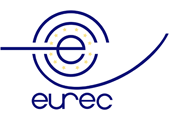menu
- Home
- National Information
- EC-Activities
- EUREC-Activities
- Legislation
- Training Materials
- Literature
- Events
- Newsletter
supported by:

Eurecnet - Training material details
Training material details
On moral medicine. Theological perspectives in medical ethics
Author(s): Lammers, Stephen E.; Verhey, Allen (Eds.)
Document type: Book
Year: 1998
Pages: 1004
Source: Publishing house: William B. Eerdmanns Publishing Company (Grand Rapids, Cambridge)
Language(s): English
Classification
National background: United StatesCategory: Non-EU Training Material for Research Ethics
Subject areas: Animal experimentation; Embryo research, stem cell research; Human experimentation
Focus: Sub-focus: general medical ethics; Indicate areas of research dealt with: animal experimentation, humans experimentation, embryo research
Content: Case studies; Cultural specifics; Normative reflections
Issues touched: Autonomy, respect, informed consent, subjects unable to consent, role of representatives Beneficence, non-maleficence, risk for the subject Justice, benefits/burdens, research without benefit for the subject, placebos/standard therapy; Protection of privacy, data protection, biological material Vulnerable groups, soldiers, prisoners, pregnant women, elderly people International research, research in developing countries; Social impact of research, economic benefits, risks for third parties; Fabrication, falsification, plagiarism Ethics committees, research protocols Research on animals
Audience: General/not specified
Classification remarks: Chapter 18 of the book is on "Research and experimentation" (60 pages). All the following remarks and evaluations refer exclusively to this chapter.
Estimation
Theoretical quality remarks: The introduction to chapter 18 gives a short survey of the topic, mentioning Nazi experiments, the Tuskegee study, the Milgram experiment, shortly reflecting their impact and summarising a number of seminar articles. Among them ("Vivisection" by the english Christian moralist C.S. Lewis and "Philosophical Reflections on Experimenting with Human Subjects" by German-American-Jewish philosopher Hans Jonas); are ("The Necessity, Promise, and Dangers of Human Experimentation" by US-American bioethicist Edmund D. Pellegrino, "Ethical Considerations in Human Experimentation: Experiments Involving Children" by Charles E. Curran, and "The Use of Zairian Children in HIV Vaccine Experimentation. A Cross-Cultural Study in Medical Ethics" by Thomas A. Nairn, taking departure from the case of an HIV-experiment on African children and confronting Western and African concepts of ethical experimentation); and two diverging statements on embryo research ("Major Conclusions and Recommendations from the Final Report of the NIH Human Embryo Research Panel" and "The Inhuman Use of Human Beings. A Statement on Embryo Research by the Ramsey Colloquium").Didactical quality: Material collection, didactically prepared
Overall estimation: worth considering
Estimation remarks: This short collection provides some material for presentation to students, though its selection is not quite representative and clearly guided by the theological background of the book. However, a teacher would not have to buy just this book in order to obtain them, and the introduction is not worth presenting to students.
